Chemical Blog Posts
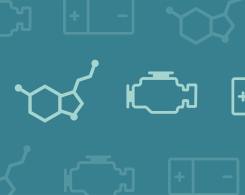
The Science Behind Cooking Caramel
Whether you’re adding it to brownies, crème brûlée, or an ice cream sundae, cooking caramel is a precarious task: One wrong move and it could burn and taste bitter or recrystallize and harden.
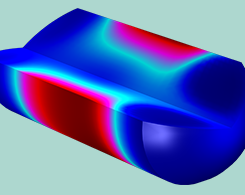
The Growing Use of Simulation in Pharmaceutical Development
Did you know that the development cycle of a drug can take years and cost millions of dollars? Simulation is 1 way to make pharmaceutical development processes faster and more cost effective.
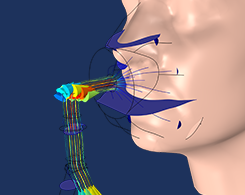
Optimizing an NIV Mask Design with Multiphysics Simulation
NIV masks offer a form of noninvasive monitoring and ventilation for COVID-19 patients, which lessens the need for ventilators and other mechanical respirators.

Exploring the 4 Basic Modes of Electrophoresis
Zone electrophoresis, moving-boundary electrophoresis, isotachophoresis, and isoelectric focusing. In most cases, the physics of new electrophoretic methods can be related back to these 4 modes.
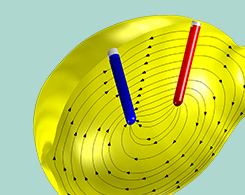
Approaching an Electrochemical Model from Scratch: Lemon Battery
The lemon battery: A high school chemistry experiment, and a great example when learning the general process for how to set up electrochemistry and battery models from scratch.
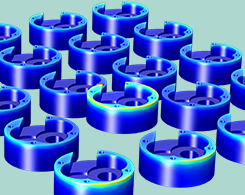
Optimizing the Electroplating Process for Multiple Components
From everyday kitchen utensils to iconic award show statuettes, rack plating is a useful manufacturing process that ensures components are electroplated both uniformly and efficiently.
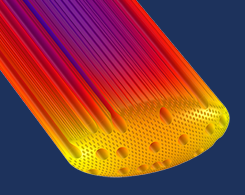
6 Ways Engineers Are Using Simulation to Help the Environment
Energy-efficient buildings and appliances. Safe nuclear waste storage. Well-preserved freshwater lakes. These are just a few examples of how simulation is being used to help the environment.
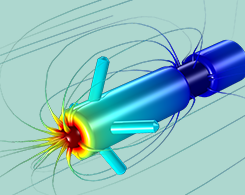
Modeling a Pacemaker Electrode in COMSOL Multiphysics®
What happens when the heart doesn’t pump the way it should? Pacemakers maintain the heart rate by monitoring natural electrical signals. Pacemaker electrodes are a key part of these devices.
